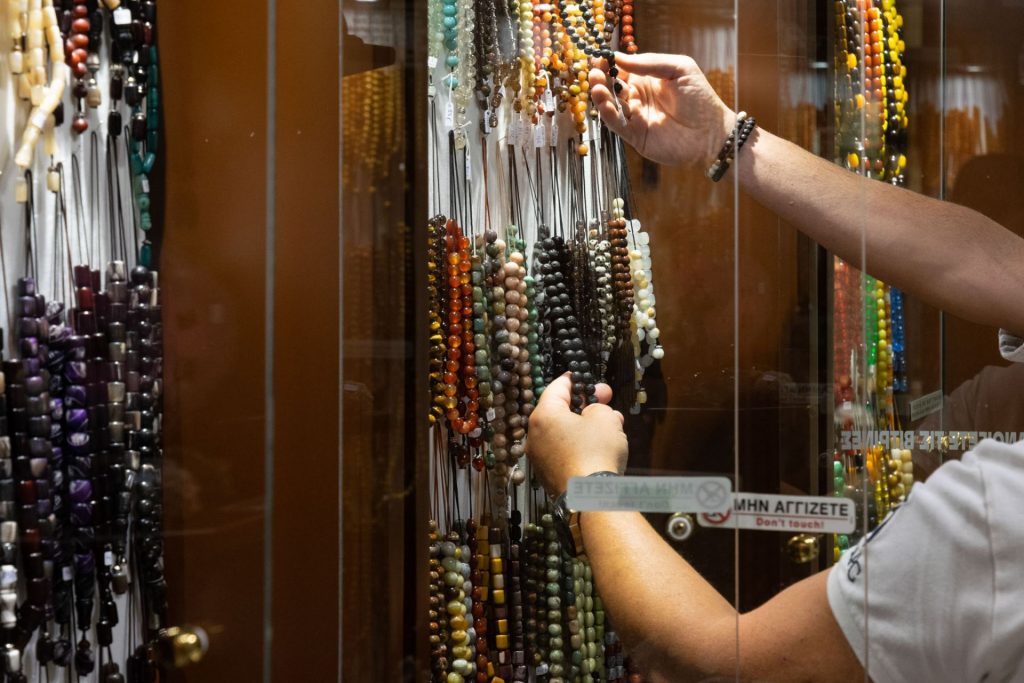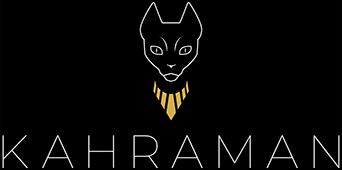About us
Our journey in the world of kombolói* started in 1982 in the centre of the old town of Chania, in a beautiful renovated building of Venetian architecture dating back to the 15th century AD.
Our zest and love for kombolói has made us into zealous travellers to far-off countries, observers of history, tradition, geology, and finally into enthusiastic master artisans.
All these in our efforts to make our dream come true, namely to create a collection of the world’s rarest and most genuine kombolóis, so old that each one of them has its own story to tell…
Our collection starts with rare and antique masterpieces made of Kahraman amber, red Egyptian Faturan amber, transparent Faturan, mastic and Yusuri black coral.
Our collection is further enriched by kombolóis made of camel bone, buffalo, bull or goat horn, ebony wood, as well as other fine materials that a kombolói can be made of, as it has been often revealed to us through our pursuits and travels.
This rich collection would be incomplete without kombolóis made of pure royal amber, Baltic amber, compressed amber or various mixtures thereof.
We constantly update our collection with a large range of modern and stylish pieces.
All kombolóis available in our shop are exclusively designed and handcrafted in our very own workshop. We will be very glad to maintain and repair your old kombolóis or begléris, and of course help you select new ones.
In addition to kombolóis, our collection includes key chains and women’s jewellery made of amber and 925 silver or even creations without silver where amber is retained in its natural shape.
As part of our constant quest to evolve, we established a new store in the centre of Chania, where we have stepped into the world of men’s jewellery.
*Kombolòi (or worry/prayer beads) originated in the depths of the East as rosaries, i.e. string of beads used to count prayers. The Greek word “Kombolói” stems from the word ‘kòmbos’ meaning ‘knot’ and the verb ‘lèo’ meaning ‘say’, where each knot is used to correspond to a prayer. Nowadays, it is an integral part of the Greek tradition and way of life, a jewel, an instrument of relaxation and stress management, and a companion in sadness and happiness.






